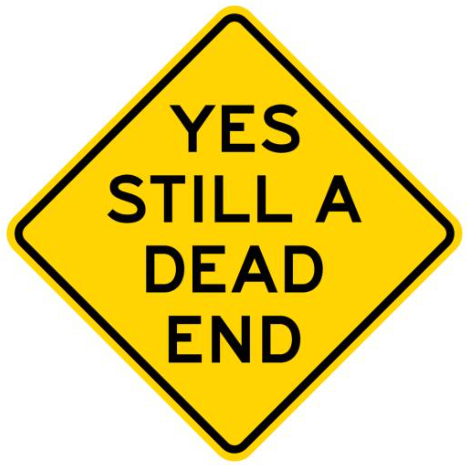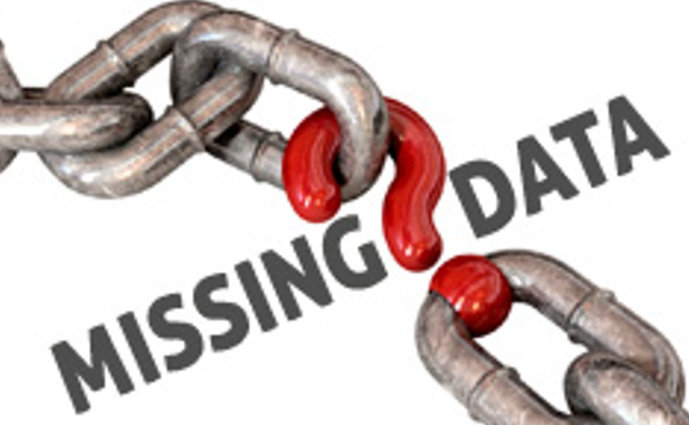While there has been talk of doing away with private prisons for years, investors of private prison operator stocks GEO Group (GEO) and Corrections Corp (CXW) haven’t taken it too seriously. That is, until August 18, 2016, which was a dark day for privately run prison companies. Corrections Corp (CXW) opened that day at $27.06, and closed at $17.57 for a 35% loss. GEO Group (GEO) opened at $32.32 and closed at $19.51 for a 40% loss. Since then, GEO has recovered a little bit, and CXW has continually slid further down.
While there has been talk of doing away with private prisons for years, investors of private prison operator stocks GEO Group (GEO) and Corrections Corp (CXW) haven’t taken it too seriously. That is, until August 18, 2016, which was a dark day for privately run prison companies. Corrections Corp (CXW) opened that day at $27.06, and closed at $17.57 for a 35% loss. GEO Group (GEO) opened at $32.32 and closed at $19.51 for a 40% loss. Since then, GEO has recovered a little bit, and CXW has continually slid further down.
The reason for the drop in these stocks, was because the US Justice Department immediately took action to reduce and “ultimately end” the use of private prisons. However, the US Justice Department prison operations, which is the Bureau of Prisons (BOP), only impacts 195,000 inmates in privately owned federal prisons, a small portion of America’s 2.2 million incarcerated adult prisoners. There’s no impact on state prisons or private immigration detention facilities. Unless they follow suit, but that’s unlikely for reasons explained later in this report. CXW has said that the BOP contracts represent only about 7% of annual revenue. Not a big percentage for CXW. Whereas GEO had 16% of its revenue from the BOP last year.
A Continual Beatdown In Share Price For Corrections Corp
As of 9/29/16, CXW is trading for $13.82 per share. It has slipped so low, that it is almost at its book value of $12.20 per share. It’s also a REIT, currently paying a $0.54 dividend per quarter.
However, a dividend reduction is expected. In an interview with CXW investor relations Director, Cameron Hopewell, he said:
“Since CXW converted to a REIT, the payout is 80% of adjusted funds of operation. With cash flows unaffected, then the discussion comes down to whether they should hold onto more cash flow to finance growth opportunities. The market is pricing in a dividend reduction. That’s just one of many scenarios that could play out. But to the extent of contract negotiation with south Texas, the cash flow will be impacted. The October dividend was announced at $0.54. The next dividend will be payable as of early January. There’s a couple months before the board will make the determination. Maybe more clarity on what the cash flows will look like. All those things will be on the table when the board is ready to discuss it. “
Many investors of CXW are expecting a dividend reduction. Perhaps some investors aren’t expecting it, and will sell if the dividend does get reduced. If the stock falls due to a dividend reduction, that would be the time to buy up shares for a profitable trade by “buying the bad news”. Once the dividend gets reduced, then the stock will likely rebound because it won’t be reduced by much, and will still provide a nice yield for income seeking investors. Although since the stock has gotten very cheap perhaps it’s not a bad idea to buy now if the bad news is already priced in.
CXW has responded to the drop in share price by restructuring corporate operations to cut costs, as the company reported on 9/27/16. It’s eliminating 12% of its workforce at headquarters, and the CEO has forfeited his restricted stock unit awards for 2016 and 2017. This is projected to save the company $9M in 2017. This restructuring will likely secure a substantial portion of the dividend and keep the company financially healthy.
The Upcoming Negative Issues For Corrections Corp Are Overblown
Canaccord’s analyst, Ryan Meliker, has a price target of $21 on CXW, which is pretty lofty, considering that’s a 50% upside in share price and CXW is a dividend-paying REIT. He said:
“We believe cash flows, dividends, and debt covenants could be pressured further should any of these upcoming decision points not go in CXW’s favor.”
The debt covenants are likely not at risk. They allow CXW to go as high as 5x debt/EBITDA. Right now, CXW has a 3.5x debt/EBITDA. CXW’s South Texas Family Residential facility accounts for 25% of its EBITDA. A renegotiation of this facility will happen within the next couple months, so look for that as a potential catalyst to push the stock down further.
The contract needs to be renegotiated because when it was first entered into in 2014, there was a crisis of a massive influx of illegal immigrants, many of them minors. This has been contained now, so some costs will be reduced. But this has been known by shareholders for a long time, well before August 18th, and therefore was already priced into the stock. A big reduction of the South Texas facility contract could result in half of that segment’s EBITDA getting cut, or about 12.5% of CXW’s total EBITDA. If that happens, then naturally the dividend will get reduced to reflect the reduced EBITDA. But other than that, there isn’t anything else that should decrease CXW’s EBITDA by a significant amount.
Anti-Private Prison Rhetoric Is Mainly To Get Votes, The Math Doesn’t Add Up
Three data points suggest that the government isn’t going to pass legislation to spend more money on public prisons to take the place of private prison use:
1. A few days ago, the Senate Democrats blocked legislation that would prevent a government shutdown. The reason is the Republicans weren’t committing to fixing Flint, Michigan’s water contamination problem. If Congress fights over fixing a community’s water contamination problem how would they agree on investing in more public prisons? They wouldn’t. The bill includes $1.1B to be spent on finding a vaccine for Zika. Fighting threatening diseases like Zika are issues the country wants to spend money on, not new prisons.
2. A few days ago, Reuters came out with a bullish article on US private prison stocks. In the article, a portfolio manager of a fund invested in GEO and CXW was quoted as saying: “The reality is that governments want to build schools, hospitals, roads, bridges … They don’t want to spend billions of dollars on prisons,” said Marshall. He estimates that it would cost $120 million to build a prison for 2,000 inmates.
3. On August 12th, a friend of mine who’s a Bernie Sanders follower told me about a prison strike/fast that starts on September 9th. Then, on August 18th, less than a week later from my friend’s warning, came the collapse of the prison stocks. Now surely, this was not a coincidence. Hillary Clinton is standing for prison reform in order to get more votes from Bernie Sanders supporters.
The Government Saves Money Per Prisoner In Private Prisons
In a report from the BOP, per capita daily cost of prisoners, shown here, it costs $80.20 daily per prisoner in public prisons, compared to only $63.35 daily for privately operated institutions. In the report, this is listed under the “Low security” row, as they are the types of prisoners that the BOP, the state governments, and the Department of Homeland Security usually send to the private prisons.
Additionally, according to Mr. Hopewell of CXW, the daily private prisoner cost is an “all-in” cost for the BOP. Whereas the public prison daily costs don’t include real estate costs, long-term pension obligations, and legal expenses arising from operations. The value advantage from private prisons is massive.
The BOP also did a study in August, 2016 comparing low security prisoners from private prisons to the equivalent type of prisoner from public prisons. The study concludes that prisoners in public prisons behave slightly better. But it wasn’t a correct apples-to-apples comparison. Most of the prisoners sent to the private prisons are illegal aliens from Mexico and Central America. Since they are going to be deported, they don’t get rewarded as much for good behavior as American citizen prisoners. This makes them act worse. This fact skews the results of the study.
Corrections Corp Real Estate Value Makes The Stock A Good Buy
Right now, CXW has a book value per share of $12.29. That’s only about $2 less than the current share price. CXW’s quarterly dividend is $0.54 per share. Therefore, it will only take about a year, or two if the dividend gets reduced, for shareholders to recoup the difference between the book value and share price. From there, it’s smooth sailing. CXW’s prisons are owned outright, and can be sold or leased like any real estate. Maybe even to the government if it goes that far.
The Truth Is, Public Prisons, not Private Prisons, Lobby For Tougher Sentences
CXW, as well as other companies in the private prison industry, doesn’t try to influence anything as far as what constitutes a law and what constitutes a sentence. They just look to hold prisoners for however long is needed. However, the politicians and advocacy groups that want to monopolize the business to the public sector and public employees have shown and lobbied that they want to incarcerate more people and for longer sentences.
CXW is also fine with conducting rehabilitation and other type of programs for inmates. But of course, they need to be compensated for running these programs. They provide whatever services their government customers want them to do, as long as they are appropriately compensated.
The Bear Case And Conclusion
The bear case of CXW and other privately run prisons, is that the story will play out just as Hillary Clinton and the anti-private prison leaders want it to. They want to slowly phase out private prisons, and as more prisoners finish their sentences in the public prisons, they’ll fill it with new prisoners instead of sending them to the private prisons. However, the problem is federal prisons are now operating at 116% capacity. That’s down from 140% capacity where it was in 2012 and 2013. But it’s still too high to add capacity and expect prisoners to be better off than they are in the private prisons because of overcrowding.
State prisons and homeland security can’t invest in more public prisons, because their constituents won’t want them to. How can they ask the public for $100-$200 million to build a new prison? That wouldn’t go well.
There are unique challenges to the prison business, it isn’t very easy to run. This is why the private prisons can run it at a lower price and more efficiently than the government can. Private, for profit, prisons are run by more intelligent, driven leaders who run them as efficient and smoothly as they can.
You can also make the bear case that crime is decreasing, therefore less prisons will be needed. However, crime rates and related statistics were already well known by investors before August 18th. Those factors should have already been priced into the stock, which was trading at double the price where it is today.





